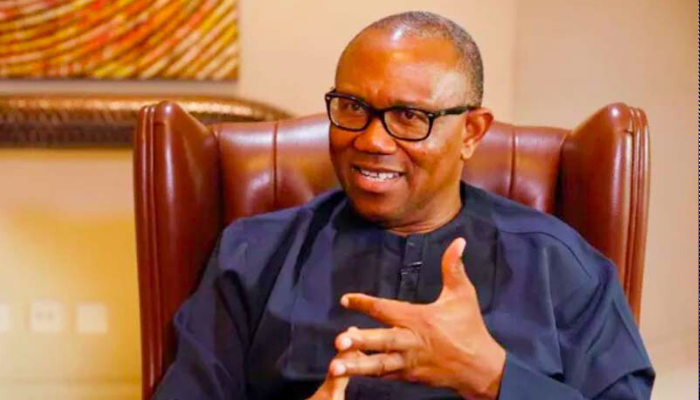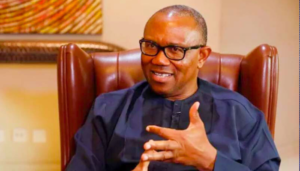Address Insecurity To Increase Food, Oil Production In Nigeria – Peter Obi Tells Tinubu
The 2023 presidential candidate of the Labour Party and former Governor of Anambra State, Peter Obi, has expressed the belief that resolving the security challenges in Nigeria will lead to a significant boost in food and oil production.
Obi expressed this view in a recent statement posted on social media.
In the X (Twitter) thread, Obi criticized the Monetary Policy Committee’s decision to raise the Monetary Policy Rate (MPR) to 22.5% and the Cash Reserve Ratio (CRR) to 45%, stating that it could worsen the country’s economic situation.
Obi further held the belief that tightening liquidity in the financial system does not lead to improved productivity, specifically in terms of food production. He argued that food production is the primary cause of inflation in Nigeria.
To propose a solution to the economic challenges, Obi emphasized the importance of addressing the issue of insecurity in the country.
He stated that by tackling this problem, the government would create an environment conducive to increased food and crude oil production, ultimately resulting in a boost in overall production. This, in turn, would lead to lower prices for products, particularly food.
Below is Obi’s full take on the current economic situation of Nigeria:
“Let me confess that the label of being a vintage Onitsha-based trader does not in any way confer on me the status of an economic expert.
“With my vast trading knowledge and my involvement in the real sector, I am of the strong opinion that the recent decision of the Monetary Policy Committee to increase the Monetary Policy Rate, MPR, to 22.5% and the Cash Reserve Ratio, CRR, to 45% will further worsen the economic situation of most Nigerian households as it is bound to cause more job losses in the productive sector, especially manufacturing and other sectors that rely on bank loans and credit facilities for their funding needs.
“Tightening liquidity in the financial system does not improve productivity, i.e. food production, which is the major cause of inflation in Nigeria. Moreover, only about 12% of N3.6 trillion of the total money in circulation is in the banking system, which means that 88%, about N3.2 trillion, is outside the banking system.
“So, this measure would rather be counterproductive as it would not address the intended purpose of managing the money supply. These new measures will worsen the fragile economy as the supply of funds would dry up for the real sector, and the new MPR rate hike will push the interest rate on loans to above 30%, which would be very difficult for the real sector operators especially manufacturers and SMEs to repay; resulting, obviously, in increased bad loans, and worsening the nation’s economic situation.
“The most critical way to manage our high rate of inflation and decline in production is for the government to address the issue of insecurity in the country, which will allow for increased food and crude oil production and an overall increase in production, which will make products, especially food, cheaper. This way, we would increase our productivity as well as restore the confidence of FDIs and FPIs to come back to the country.
“I must caution that what the Nigerian economy needs now is hard-headed practical originality and results. Tinkering with classical economic theories can only deepen our crisis.”





